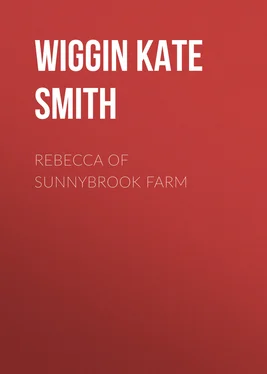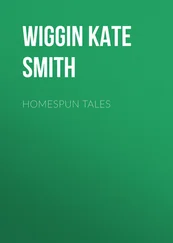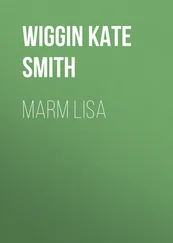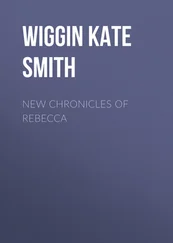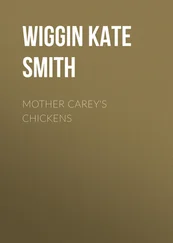Kate Wiggin - Rebecca of Sunnybrook Farm
Здесь есть возможность читать онлайн «Kate Wiggin - Rebecca of Sunnybrook Farm» — ознакомительный отрывок электронной книги совершенно бесплатно, а после прочтения отрывка купить полную версию. В некоторых случаях можно слушать аудио, скачать через торрент в формате fb2 и присутствует краткое содержание. Жанр: foreign_children, foreign_antique, foreign_prose, на английском языке. Описание произведения, (предисловие) а так же отзывы посетителей доступны на портале библиотеки ЛибКат.
- Название:Rebecca of Sunnybrook Farm
- Автор:
- Жанр:
- Год:неизвестен
- ISBN:нет данных
- Рейтинг книги:4 / 5. Голосов: 1
-
Избранное:Добавить в избранное
- Отзывы:
-
Ваша оценка:
- 80
- 1
- 2
- 3
- 4
- 5
Rebecca of Sunnybrook Farm: краткое содержание, описание и аннотация
Предлагаем к чтению аннотацию, описание, краткое содержание или предисловие (зависит от того, что написал сам автор книги «Rebecca of Sunnybrook Farm»). Если вы не нашли необходимую информацию о книге — напишите в комментариях, мы постараемся отыскать её.
Rebecca of Sunnybrook Farm — читать онлайн ознакомительный отрывок
Ниже представлен текст книги, разбитый по страницам. Система сохранения места последней прочитанной страницы, позволяет с удобством читать онлайн бесплатно книгу «Rebecca of Sunnybrook Farm», без необходимости каждый раз заново искать на чём Вы остановились. Поставьте закладку, и сможете в любой момент перейти на страницу, на которой закончили чтение.
Интервал:
Закладка:
Rise my soul, strain every nerve,
Thy morgage to remove,
Gain thy mother's heartfelt thanks
Thy family's grateful love.
Pronounce family QUICK or it won't sound right
Your loving little friend
Rebecca
Dear John,—You remember when we tide the new dog in the barn how he bit the rope and howled I am just like him only the brick house is the barn and I can not bite Aunt M. because I must be grateful and edducation is going to be the making of me and help you pay off the morgage when we grow up. Your loving
Becky.
V
WISDOM'S WAYS
The day of Rebecca's arrival had been Friday, and on the Monday following she began her education at the school which was in Riverboro Centre, about a mile distant. Miss Sawyer borrowed a neighbor's horse and wagon and drove her to the schoolhouse, interviewing the teacher, Miss Dearborn, arranging for books, and generally starting the child on the path that was to lead to boundless knowledge. Miss Dearborn, it may be said in passing, had had no special preparation in the art of teaching. It came to her naturally, so her family said, and perhaps for this reason she, like Tom Tulliver's clergyman tutor, "set about it with that uniformity of method and independence of circumstances which distinguish the actions of animals understood to be under the immediate teaching of Nature." You remember the beaver which a naturalist tells us "busied himself as earnestly in constructing a dam in a room up three pair of stairs in London as if he had been laying his foundation in a lake in Upper Canada. It was his function to build, the absence of water or of possible progeny was an accident for which he was not accountable." In the same manner did Miss Dearborn lay what she fondly imagined to be foundations in the infant mind.
Rebecca walked to school after the first morning. She loved this part of the day's programme. When the dew was not too heavy and the weather was fair there was a short cut through the woods. She turned off the main road, crept through uncle Josh Woodman's bars, waved away Mrs. Carter's cows, trod the short grass of the pasture, with its well-worn path running through gardens of buttercups and white-weed, and groves of ivory leaves and sweet fern. She descended a little hill, jumped from stone to stone across a woodland brook, startling the drowsy frogs, who were always winking and blinking in the morning sun. Then came the "woodsy bit," with her feet pressing the slippery carpet of brown pine needles; the "woodsy bit" so full of dewy morning, surprises,—fungous growths of brilliant orange and crimson springing up around the stumps of dead trees, beautiful things born in a single night; and now and then the miracle of a little clump of waxen Indian pipes, seen just quickly enough to be saved from her careless tread. Then she climbed a stile, went through a grassy meadow, slid under another pair of bars, and came out into the road again having gained nearly half a mile.
How delicious it all was! Rebecca clasped her Quackenbos's Grammar and Greenleaf's Arithmetic with a joyful sense of knowing her lessons. Her dinner pail swung from her right hand, and she had a blissful consciousness of the two soda biscuits spread with butter and syrup, the baked cup-custard, the doughnut, and the square of hard gingerbread. Sometimes she said whatever "piece" she was going to speak on the next Friday afternoon.
"A soldier of the Legion lay dying in Algiers,
There was lack of woman's nursing, there was dearth of
woman's tears."
How she loved the swing and the sentiment of it! How her young voice quivered whenever she came to the refrain:—
"But we'll meet no more at Bingen, dear Bingen on the Rhine."
It always sounded beautiful in her ears, as she sent her tearful little treble into the clear morning air. Another early favorite (for we must remember that Rebecca's only knowledge of the great world of poetry consisted of the selections in vogue in school readers) was:—
"Woodman, spare that tree!
Touch not a single bough!
In youth it sheltered me,
And I'll protect it now."
When Emma Jane Perkins walked through the "short cut" with her, the two children used to render this with appropriate dramatic action. Emma Jane always chose to be the woodman because she had nothing to do but raise on high an imaginary axe. On the one occasion when she essayed the part of the tree's romantic protector, she represented herself as feeling "so awful foolish" that she refused to undertake it again, much to the secret delight of Rebecca, who found the woodman's role much too tame for her vaulting ambition. She reveled in the impassioned appeal of the poet, and implored the ruthless woodman to be as brutal as possible with the axe, so that she might properly put greater spirit into her lines. One morning, feeling more frisky than usual, she fell upon her knees and wept in the woodman's petticoat. Curiously enough, her sense of proportion rejected this as soon as it was done.
"That wasn't right, it was silly, Emma Jane; but I'll tell you where it might come in—in Give me Three Grains of Corn. You be the mother, and I'll be the famishing Irish child. For pity's sake put the axe down; you are not the woodman any longer!"
"What'll I do with my hands, then?" asked Emma Jane.
"Whatever you like," Rebecca answered wearily; "you're just a mother—that's all. What does YOUR mother do with her hands? Now here goes!
"'Give me three grains of corn, mother,
Only three grains of corn,
'T will keep the little life I have
Till the coming of the morn.'"
This sort of thing made Emma Jane nervous and fidgety, but she was Rebecca's slave and hugged her chains, no matter how uncomfortable they made her.
At the last pair of bars the two girls were sometimes met by a detachment of the Simpson children, who lived in a black house with a red door and a red barn behind, on the Blueberry Plains road. Rebecca felt an interest in the Simpsons from the first, because there were so many of them and they were so patched and darned, just like her own brood at the home farm.
The little schoolhouse with its flagpole on top and its two doors in front, one for boys and the other for girls, stood on the crest of a hill, with rolling fields and meadows on one side, a stretch of pine woods on the other, and the river glinting and sparkling in the distance. It boasted no attractions within. All was as bare and ugly and uncomfortable as it well could be, for the villages along the river expended so much money in repairing and rebuilding bridges that they were obliged to be very economical in school privileges. The teacher's desk and chair stood on a platform in one corner; there was an uncouth stove, never blackened oftener than once a year, a map of the United States, two black-boards, a ten-quart tin pail of water and long-handled dipper on a corner shelf, and wooden desks and benches for the scholars, who only numbered twenty in Rebecca's time. The seats were higher in the back of the room, and the more advanced and longer-legged pupils sat there, the position being greatly to be envied, as they were at once nearer to the windows and farther from the teacher.
There were classes of a sort, although nobody, broadly speaking, studied the same book with anybody else, or had arrived at the same degree of proficiency in any one branch of learning. Rebecca in particular was so difficult to classify that Miss Dearborn at the end of a fortnight gave up the attempt altogether. She read with Dick Carter and Living Perkins, who were fitting for the academy; recited arithmetic with lisping little Thuthan Thimpthon; geography with Emma Jane Perkins, and grammar after school hours to Miss Dearborn alone. Full to the brim as she was of clever thoughts and quaint fancies, she made at first but a poor hand at composition. The labor of writing and spelling, with the added difficulties of punctuation and capitals, interfered sadly with the free expression of ideas. She took history with Alice Robinson's class, which was attacking the subject of the Revolution, while Rebecca was bidden to begin with the discovery of America. In a week she had mastered the course of events up to the Revolution, and in ten days had arrived at Yorktown, where the class had apparently established summer quarters. Then finding that extra effort would only result in her reciting with the oldest Simpson boy, she deliberately held herself back, for wisdom's ways were not those of pleasantness nor her paths those of peace if one were compelled to tread them in the company of Seesaw Simpson. Samuel Simpson was generally called Seesaw, because of his difficulty in making up his mind. Whether it were a question of fact, of spelling, or of date, of going swimming or fishing, of choosing a book in the Sunday-school library or a stick of candy at the village store, he had no sooner determined on one plan of action than his wish fondly reverted to the opposite one. Seesaw was pale, flaxen haired, blue eyed, round shouldered, and given to stammering when nervous. Perhaps because of his very weakness Rebecca's decision of character had a fascination for him, and although she snubbed him to the verge of madness, he could never keep his eyes away from her. The force with which she tied her shoe when the lacing came undone, the flirt over shoulder she gave her black braid when she was excited or warm, her manner of studying,—book on desk, arms folded, eyes fixed on the opposite wall,—all had an abiding charm for Seesaw Simpson. When, having obtained permission, she walked to the water pail in the corner and drank from the dipper, unseen forces dragged Seesaw from his seat to go and drink after her. It was not only that there was something akin to association and intimacy in drinking next, but there was the fearful joy of meeting her in transit and receiving a cold and disdainful look from her wonderful eyes.
Читать дальшеИнтервал:
Закладка:
Похожие книги на «Rebecca of Sunnybrook Farm»
Представляем Вашему вниманию похожие книги на «Rebecca of Sunnybrook Farm» списком для выбора. Мы отобрали схожую по названию и смыслу литературу в надежде предоставить читателям больше вариантов отыскать новые, интересные, ещё непрочитанные произведения.
Обсуждение, отзывы о книге «Rebecca of Sunnybrook Farm» и просто собственные мнения читателей. Оставьте ваши комментарии, напишите, что Вы думаете о произведении, его смысле или главных героях. Укажите что конкретно понравилось, а что нет, и почему Вы так считаете.
